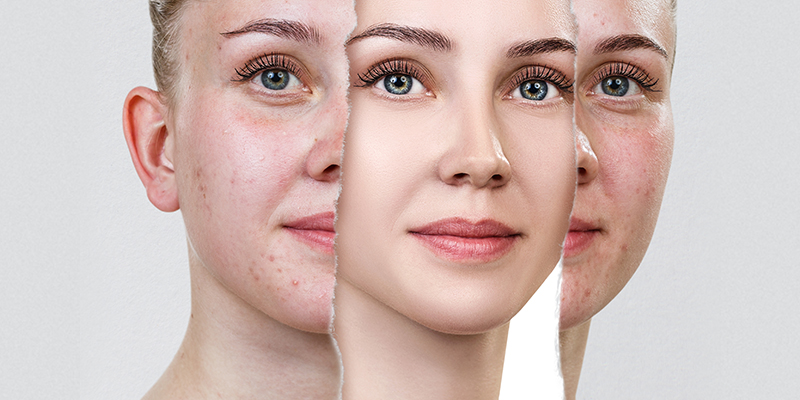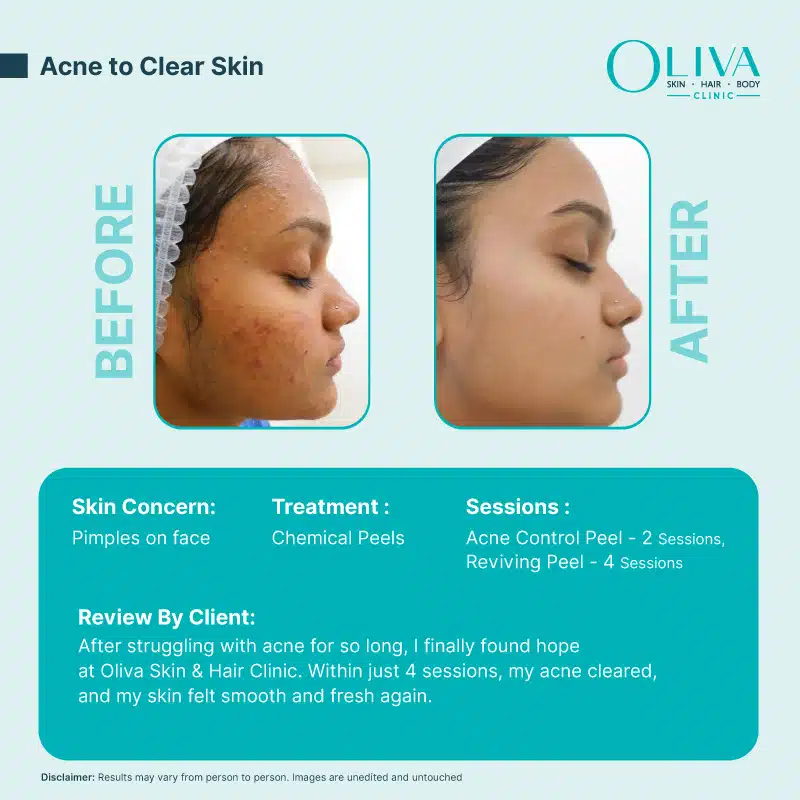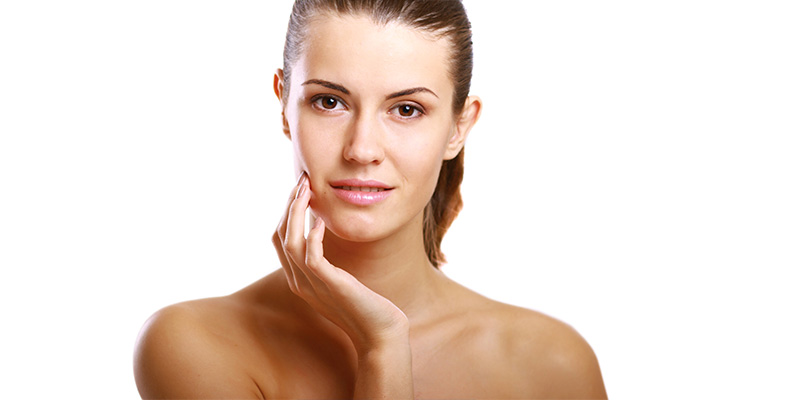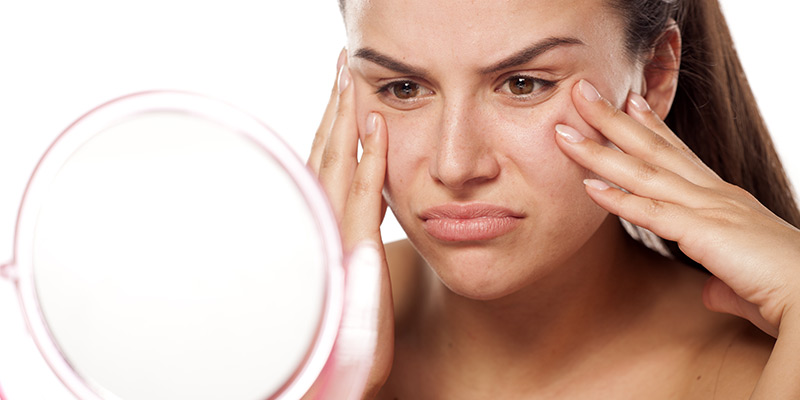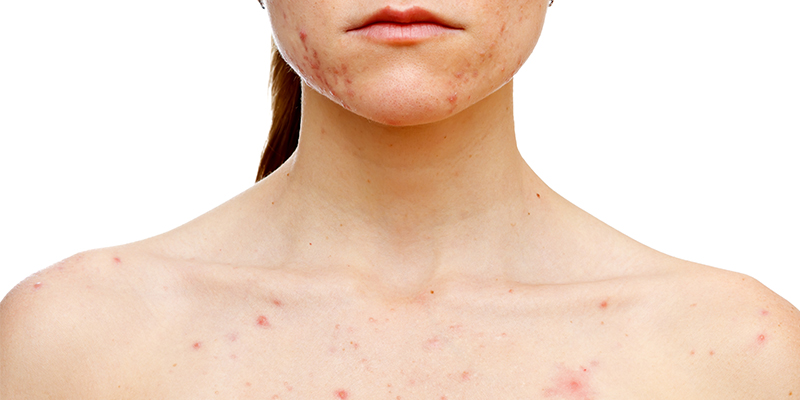In This Article
Acne Pustules: Causes, Symptoms, Treatment & Prevention Tips
Are you suffering from painful pus-filled pimples of late? If yes, then chances are you may be having a moderate or severe type of acne. Find out about the other causes, symptoms, treatments and preventive measures associated with pustules right here to manage them effectively!
In This Article
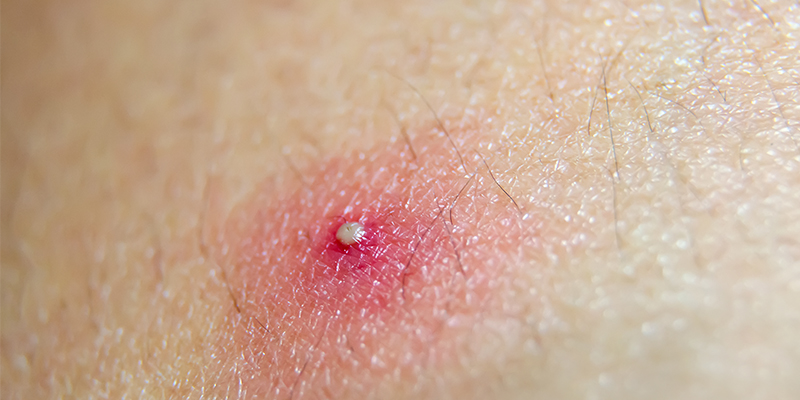
What Is An Acne Pustule?
Pustules are small pus-filled bumps that may have a whitish-yellow appearance and a ring of redness around it. They usually occur as a form of moderate to severe acne and can affect both men and women of all age groups. They usually appear on areas of the face like forehead, nose, cheek, chin and jawline. This form of breakouts may also occur on the neck, shoulders, arms and back.
Must Read: Get Safe And Effective Treatment For Acne
What Is The Difference Between Papules And Pustules?
Here are a few differences between a papule and a pustule that you must know:
- Pustules are painful most of the times, while papules may or may not be so.
- Pustules will contain fluid or pus, whereas papules are solid skin lesions that do not contain pus.
- In terms of texture, papules are harder than pustules.
- Pustules are whitish to yellow in appearance, whereas papules are red or skin colour.
- Papules occur due to mild to moderate acne. Pustules are symptomatic of moderate to severe acne.
What Are The Causes Of Pustules?
Acne is one of the most common causes of pustules. You are likely to have these skin lesions if you have a moderate to severe form of acne. The number and size of these painful pus-filled pimples may increase based on the severity and grade of acne you have. Here is a range of other conditions that can also cause them:
- Infections: Pus-filled lesions may appear due to various infections like Folliculitis (bacterial), herpes, smallpox and chickenpox (viral), scabies (parasitic) or Candidiasis Tinea (fungal) too.
- Skin Disorders: Acute skin conditions like blistering disorders, pustular psoriasis, acne rosacea and contact dermatitis may cause eruptions that contain pus.
- Drug Eruptions: Pustules may appear due to acneiform drug eruptions also.
- Food Allergies: A severe food allergy can manifest itself in the form of pus-filled boils.
- Insect bites: Venomous bug bites can also lead to the appearance of these painful and tender bumps on the skin.
Now that you know the various reasons for the appearance of pustules, it’s time to find out the signs you need to watch out for to identify them.
Must Read: How To Prevent Pimples?
What Are The Signs & Symptoms Of Pustules?
Here are some of the common signs of pustules:
- Red, painful or itchy skin
- Painful lesions
- Tiny blisters filled with whitish or yellowish pus
If the inflammation is big and painful, or if your skin is unusually warm around it, consult a dermatologist to seek relief immediately. If the following symptoms accompany pustules, you may need a further medical investigation to identify the underlying health condition:
- Fever
- Nausea
- Diarrhoea
- Cold And Clammy skin
- Vomiting
Now that you know the visible signs to identify these skin eruptions, it’s time to explore the treatment options for it.
What Are The Treatment Options For Acne Pustules?
We all tend to pop our pimples as an impulsive reaction to reduce the pain and get rid of the pus build-up. However, doing so could trigger further breakouts and cause scarring. Here are some of the effective treatment options for these pus-filled pimples you may try:
-
OTC Topical drugs:
There are some topical medicines such as retinoids and benzoyl peroxide that are available over-the-counter to treat pustules due to acne. However, it is best to consult a dermatologist for treating your pustules safely and effectively. He/she will determine the underlying causes of these pus-filled lesions before suggesting any of the following modalities as a standalone or combination treatment to provide you with the best results:
-
Medications:
Your dermatologist may recommend vitamin D3-derivatives, retinoids and corticosteroids to treat pustules that occur due to
-
Antibiotics:
Doctors often prescribe both oral and topical antibiotics to minimise inflammation that occurs due to bacterial infections.
-
Chemical Peels:
Professional skin experts use specific plant-based extracts to perform controlled exfoliation of the dead, upper layer of the skin. Salicylic acid is a chemical peel, which can effectively treat pus-filled pimples.
-
Drainage Of Pustules:
Many dermatologists use a specialised instrument in a sterile environment to drain pustular lesions surgically. It helps reduce the associated inflammation and pain effectively.
-
Advanced Dermatology Procedures:
Your doctor may recommend photodynamic therapy to treat pus-filled acne. He/she will use light and a special light-activated solution to minimise the pustules. Avoid using home remedies to treat these pus-filled lesions as they do not have any proven scientific efficacy and may not deliver desired results. The use of self-care methods may indeed worsen your skin condition.
Must Read: What Is The Best Acne Treatment For Adults?
How To Prevent Acne Pustules?
Here are some simple tips you can follow to keep pus-filled pimples at bay.
- Always wash your skin and keep it clean. Avoid using harsh soaps or dirty washcloth and ensure that you do not touch your skin unnecessarily as it can spread bacteria.
- Keep your skin moisturised by using non-comedogenic products.
- If you notice breakouts on your skin, then avoid using makeup as much as possible. Alternatively, you can opt for water-based ones.
- Use sunscreen suitable for your skin type before you step outdoors.
- Eat a healthy diet that is rich in fibre, vitamins, proteins and minerals. A balanced diet will boost your immunity and improve your skin health. If you notice the occurrence of pustules even after following the above tips, consult a dermatologist.
Frequently Asked Questions On Acne Pustules
A pustule refers to pus-filled skin inflammation and popping it may aggravate the skin condition.
Advanced treatment of acne pustules may take 6-8 session to minimise the pus-filled eruptions effectively. However, the number of sessions you need may vary based on the underlying cause, the grade of acne and the severity of the condition.
Pustules may be contagious based on the underlying cause. However, if it is occurring due to acne, it is not an infectious condition.
Our certified subject matter experts do extensive research and collate facts from reputed scientific journals and international studies to create informative and engaging articles related to all your dermatology concerns. They strive to help you decipher medical jargon, distinguish fact from fiction and overcome paranoia. Our qualified medical board or expert panel goes a step further to verify these facts based on their rich academic knowledge, vast clinical experience and critical industry insights to ensure you consume only medically accurate content that empowers you to make informed decisions about your hair and skin-care treatments and weight management. Check out our Editorial policy for further details.
https://pubmed.ncbi.nlm.nih.gov/12113648/
https://pmc.ncbi.nlm.nih.gov/articles/PMC5429107/




